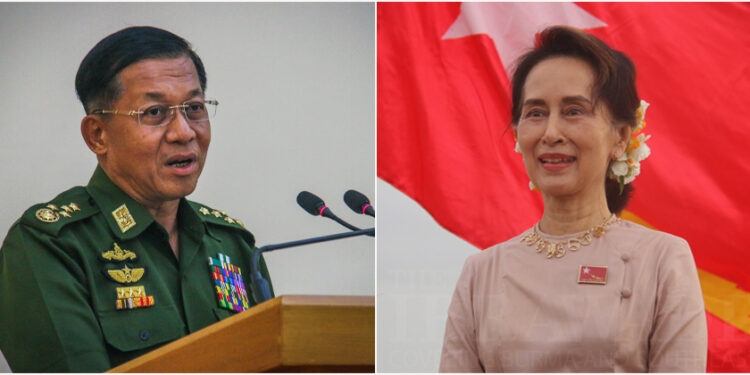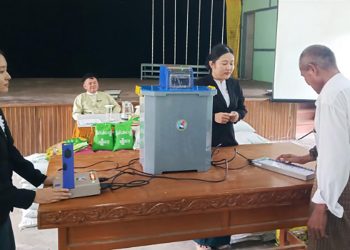Every post-election period is interesting. In most countries, the winner’s formation of the next administration is the big story, and all eyes are on the personalities that will form the incoming government. In Myanmar, things are never that simple. Given the powerful military’s continued involvement in the country’s politics, history dictates that a meeting between the elected leader and the army chief is the first order of business.
That’s exactly what happened in early December five years ago, in the wake of the Daw Aung San Suu Kyi-led National League for Democracy’s victory in the 2015 election. At that meeting, Suu Kyi and Myanmar military commander-in-chief Senior General Min Aung Hlaing agreed to abide by the people’s wish that they collaborate for the sake of the country’s stability, the rule of law, national unity and development, according to a statement issued by the military at the time.
The ritual was reportedly repeated more than a month after this year’s general election—yes, the NLD won again—with the two sides meeting in Myanmar’s capital Naypyitaw last weekend, according to informed sources. Another round of meetings is in the pipeline, likely before the end of this month, military and government sources say.
This time, both sides have been tight lipped about the meeting, but they are believed to have shared their expectations for the next five years, and discussed issues such as the holding of elections in areas where the Nov. 8 poll was canceled due to regional instability. The Irrawaddy has learned that Daw Aung San Suu Kyi has her eyes on the post of Union president when the NLD begins its second term in office in March. It is a position she has long wished for and fully deserves, but is barred from holding by the military-drafted Constitution due to the foreign nationalities of her children and late spouse.
As for the senior general, who at the age of 64 is well beyond his official retirement age of 60, he would reportedly prefer to remain where he is now—as the military chief—for another three years at least.
The truth is, the two need each other if they are to achieve their ambitions.
Daw Aung San Suu Kyi needs military support for her presidency. It can only happen if the unelected military representatives who comprise 25 percent of Parliament endorse the scrapping or amendment of Article 59(f) of the Constitution—the provision that bars her from becoming president.
At the same time, the Constitution dictates that the appointment of the military chief (or in the case of Snr-Gen Min Aung Hlaing, the extension of his service) must be approved by the president.
One possible scenario, according to sources in Naypyitaw, is that the military would agree to temporarily waive the enforcement of Article 59(f) for the next five years—allowing Daw Aung San Suu Kyi to assume the presidency—in exchange for her personal endorsement of the senior general’s continued tenure as military chief.
Some dismiss this outcome as wishful thinking, pointing out that the generals are notoriously hard to predict. Others, however, focus on the potential positives of such a scenario. If it is really in the works, they say, it could lead to important breakthroughs for the country’s protracted peace process and the elusive goal of national reconciliation, among other developments.
Whatever eventuates, politics is the ultimate game of chance, as the saying goes.
For the moment, the silence on both fronts can only mean that important developments are near. Stay tuned!

















